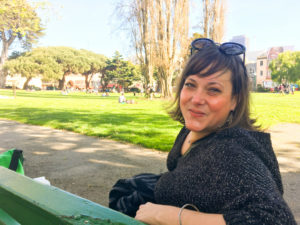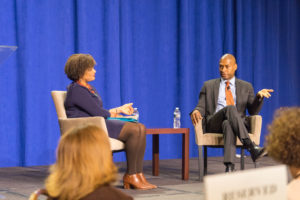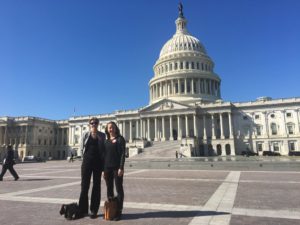Over the years, I have seen time and again how much more expensive it is to buy and eat healthy foods. We live in a society that has created a very efficient prepared, packaged, and processed food industry that turns out very cheap and high-calorie products. So for our neighbors constrained by budget, produce, for example, won’t give the same bang for your buck as a fast-food “value meal.”
I’m so proud of the way our Food Bank community has stepped in to bridge this gap and increased access to high-quality food for all. Your generosity enables us to provide plenty of fresh produce in the mix of options that people find in our pantries. In fact, two-thirds of the food we distribute is produce and other high-protein foods, such as dairy and eggs.
Through our Nutrition Education program, we’re ensuring that neighbors know how to prepare healthy meals with the food we provide. We also encourage participants to make healthier choices long-term and offer tips for shopping for nutritious foods on a limited budget.
Our participants know they can count on us week in, and week out — not only for great food, but for the resources and information they need to make great meals. In the same way, the Food Bank relies on our monthly donors who provide consistent support, month after month, all year long.
Our monthly donors are such a gift to us because their consistent support provides the financial security we need to make long-term decisions such as expanding our facility in Marin. If you aren’t a monthly donor already, I encourage you to consider becoming one. All February long, Gilead Sciences, Inc. is generously offering to match all new and increased monthly gifts for a full year, up to a total of $125,000.
This year, with your support and the support of our monthly donors, we look forward to doing even more of what we do best: feeding people.
Thank you for your continued partnership in this work.
With gratitude,

Paul Ash, Executive Director,
San Francisco-Marin Food Bank



 Bad luck and broken dreams
Bad luck and broken dreams
 There was plenty to see on Day One of the conference, but the highlight was a panel session that included Charles M. Blow, an Op-Ed columnist at The New York Times, and Fatima Goss Graves, president and CEO of the National Women’s Law Center. The conversation quickly turned into a back-and-forth on the complex intersection of institutional racism, our education system, income inequality – and how it all relates to food insecurity. When it was over, the panel received a several-minutes long standing-ovation.
There was plenty to see on Day One of the conference, but the highlight was a panel session that included Charles M. Blow, an Op-Ed columnist at The New York Times, and Fatima Goss Graves, president and CEO of the National Women’s Law Center. The conversation quickly turned into a back-and-forth on the complex intersection of institutional racism, our education system, income inequality – and how it all relates to food insecurity. When it was over, the panel received a several-minutes long standing-ovation.
Share